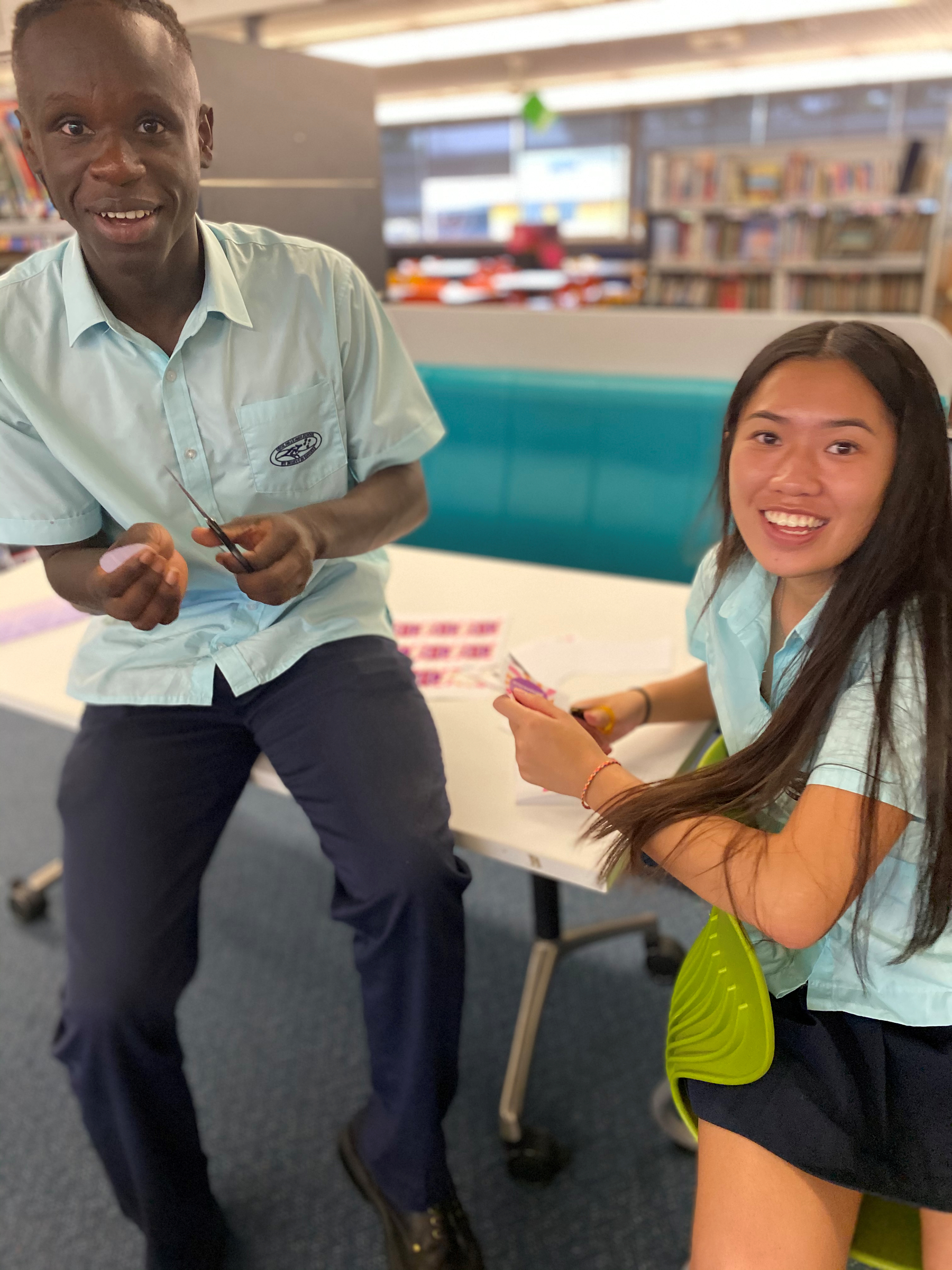Coping with change

Engaging with students, teachers and parents, Glen Gerreyn is a regular guest speaker at various Careers events held at Cecil Hills High School. Glen continues to inspire - offering profound experiences of meaning, identifying, shifting perceptions, challenging boundaries and motivating positive change. We are delighted to share below, one of his latest articles..
How to help students cope with change
In these unusual times, there are ways to help young people stay grounded and have hope for the future. Find out more about how to cope with change. “Intelligence is the ability to adapt to change.” – Stephen Hawking
It really doesn’t seem that long ago we only had four television stations to watch, littered with commercials. The seemingly endless choice on Netflix now leaves me paralysed with indecision.
I sometimes catch myself complaining about the slowness of the internet, only to wonder how on earth we ever endured dial-up-connection. And remember when we couldn’t use the internet and the landline at the same time? At my house today there are five smartphones, six iPads, four laptops, one desk-top computer and two televisions, all simultaneously connected to Wi-Fi.
Four months ago, our country was burning, then it flooded. As of March 2020, plague and economic disaster are added to the stress of climate change and the threat of terrorism. Obviously change today is happening faster than we could have ever imagined. The future now swarms us with endless tweets and updates, leaving us stunned and feeling like we have just been attacked by a hive of bees.
Whilst combing my bookcase, I came across an aging copy of a book that was published in 1970 by Alvin Toffler. This bestselling book is called Future Shock. Toffler defines the term future shock as “the shattering stress and disorientation that we induce in individuals by subjecting them to too much change in too short a time.” This prophetic definition was first introduced to us fifty years ago—at a time when the comparative rate of change seemed slothful.
Today we live in a time of heightened anxiety, stress and panic. There are lots of alarming things happening simultaneously around the world and social media platforms give us the potential to put all those alarming things in front of us, all the time. Instead of hearing about one thing happening locally, we hear about two hundred things happening all across the world. This puts our biology in a state of emergency because we don’t know how to calibrate all the information or which catastrophe is the one worth worrying about. As a result, we either go numb or develop intensifying levels of stress while trying to cope with change.
For young people, ‘future shock’ can hit hard but below are three ways we can help them (and yourself) to cope with change effectively and thrive in the midst of it.
Find your anchor
With the world facing massive disruption, people instinctively seek a place where they feel safe.
Help young people to fight the impulse to turn inward and hide away from others. Right now, physical distance is essential for health but you can intensify social nearness. When young people are anxious and uncertain, the process back to business as usual takes time. It is best not to do it alone and this is one of the most effective ways to cope with change.
Guide your students and children to find their anchor. The best anchor a young person can have is their connection to their parents and extended family. This is a time for families to come together like never before, especially with everyone working from home.
Encourage your family to get into a routine. Schedule at least three activities the whole family can join in on. Below are some examples my family has put into play.
- 6am Run around the block
- 7am Breakfast together
- 8am-3pm Work and learn
- 4pm Board games
- 5pm Drop everything and read
- 7pm Family movie
Forming a routine to cope with change decreases your level of stress and cognitive load because these automated executions are driven from memory and don’t have to be decided, discussed, negotiated, planned and prepared.
Another anchor is their friends. Encourage your children to stay in touch via FaceTime, Zoom, Google Hangouts or a Microsoft Teams call. Ensure they make it a regular occurrence at least once a day. With schools shutting down and co-curricular activities cancelled, the need for young people to connect with their peers is paramount to their wellbeing. Other anchors in a storm can include listening to favourite music or uplifting messages, connecting with extended family, stretching, colouring in books, building a fort, setting some goals, cleaning a pantry or bedroom, and re-discovering your faith.
The problem is not the storm. The real issue is many young people today haven’t yet identified an anchor. Help them source an anchor by giving examples of your own.
Fix your focus to cope with change
It is easy to focus your attention on the 24-hour news cycle and the social media feeds causing panic and distress.
This goes for your teens and for you: Please stop reading dumb stuff posted on Facebook by a distant relative. Stop listening to people who just read the news and randomly give their opinions on how long this crisis will last and what will happen in the future with no scientific basis to back it up.
The Philosopher Seneca said, “To be everywhere is to be nowhere”. Source and listen only to good cradles of information and make educated and informed decisions in this new world we live in. This insight alone will allow you and your community to flourish.
Next, start feeding your students and children information that will enrich their soul. Stories and narratives of hope are always near and present, but you need to fix your focus on them.
Remember, whatever you focus on will magnify. Seeing those black and white pictures of how Australians coped with the Spanish flu in 1918 and of whole communities wearing masks emboldened me and helped me to realise we have experienced things like this before. Yes, we were scathed and the loss of life was unfathomable but humanity survived and went on to impact the world in positive ways.
During these difficult times, fix your focus on your ambitions and your goals. Eliminate distractions and you will have more time and tranquillity. Peace will fill your heart as you focus on your strengths.
Look for opportunities to pivot and adapt
In a disruptive world, the ability to adapt is the most essential skill we should develop.
Charles Darwin once said, “It is not the strongest of the species that survives, nor the most intelligent, it is the one that is most adaptable to change.”
I have heard this phrase echoed in numerous circles that this could potentially be a time of the ‘Great Reset’. Let us all hit CTRL ALT DELETE on bad habits, old assumptions, negative biases and unhealthy diets while we have the time. Imagine if this seemingly terrible crisis caused us all to reboot our inner lives, our physical lives, our education system and our geopolitical world.
This virus has made one thing very apparent; we are so much more connected and closer than we could have ever imagined. It is amazing that a virus which started in a village in China could cause the collapse of countries across the globe in just a few short months.
We have talked about the need for change in so many outdated systems but rarely acted upon these discussions, and have delayed making important changes. But from now on, no longer.
Now is the time to act to pivot and to adapt. To do the things we know are right or to do the things we have procrastinated on for too long. Instead of allowing the rapid change to affect us emotionally and physically, maybe we should dance with it and allow it to evolve us into something greater.
Authentic change occurs when pressures pivot to execution. This can result in an even more hope-filled future.
Glen Gerreyn
Director and Founder


